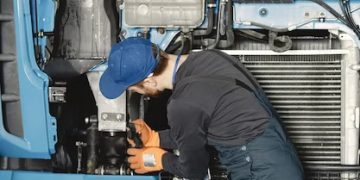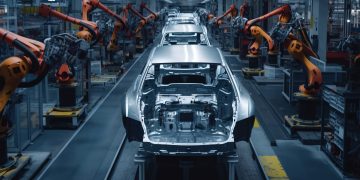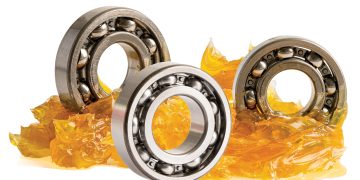The Federation of Automobile Dealers Associations (FADA) had predicted tapered growth in the low single digits for the automotive industry. In light of this forecast, what steps do you recommend dealerships take to maintain profitability and sustain business growth in the coming year?
The Federation of Automobile Dealers Associations (FADA) acknowledges the current market situation, characterised by slower growth rates in the automotive industry. This is due to already record PV and Tractor sales in the last Financial Year. Due to already very high base, during this FY, the Dealer community will require strategic planning and implementation of various measures to ensure business sustainability and profitability. Based on our in-depth understanding of the market dynamics, I recommend the following steps for dealerships:
l Efficient Inventory Management: In an industry where margins are slim, judicious inventory management becomes paramount. Dealers should strive to keep their inventory turnaround rates within 21 days. This practice not only reduces inventory holding costs but also enhances cash flow management. Furthermore, dealerships should work closely with OEM partners to ensure a supply of right models and variants that align with current consumer demand.
l Efficient collaboration with OEMs: To navigate the complex market landscape, dealerships should efficiently engage and collaborate with their Original Equipment Manufacturers (OEMs). This partnership can help identify potential opportunities for growth, address challenges effectively and ensure business competitiveness and sustainability.
l Investment in Digital Platforms: Embracing the digital revolution is a crucial strategy for dealerships to attract and engage with a wider customer base. Implementing digital marketing strategies, online sales platforms and virtual showrooms can extend reach, improve customer experience and enhance profitability. Both AI and ML will provide an edge to dealership in terms of attracting the right customer for the right product.
l Employee Training and Development: Dealerships should focus on continuous training and development of their staff. Skilled and knowledgeable employees can effectively convey the value proposition to customers, fostering customer trust, and loyalty.
l Diversification of Revenue Streams: To mitigate risks associated with slow vehicle sales, dealerships should consider diversifying their revenue streams. This could involve expanding after-sales services, offering extended warranties or enhancing used car business segments. In fact, cross selling of insurance and banking products will also enhance Dealership top line thus adding a new line of business.
l Sustainability Measures: Adopting sustainable practices can not only reduce operational costs but also enhance the dealership’s brand image. Measures could include implementing energy-saving practices, recycling initiatives, and promoting
eco-friendly vehicles.
How does FADA support and promote diversity and inclusion within the automotive industry, particularly in terms of gender representation and equal opportunities?
I acknowledge the essentiality of diversity and inclusion within the automotive industry. FADA, serving as a cornerstone of employment for over 4.5 million individuals, holds firm to the principle of equal opportunity for all, regardless of gender, ethnicity, or social background.
Understanding the importance of gender equality, FADA has taken concrete steps to bolster the representation of women in the automotive industry. We’ve recently initiated the ‘Women in FADA’ (WIF) vertical, a transformative initiative designed to identify and support women entrepreneurs who manage at least one department within the dealership business. The aim of the WIF vertical is not only to identify such talented women leaders but also to create a forum for them to share best practices and learn from each other.
Moreover, we have seen the emergence of all-women dealerships, a testament to the fact that the business can run efficiently without gender imbalance. This initiative serves as an excellent example of female leadership in action and shatters any stereotypes about women’s roles in the automotive industry.
FADA also values the aspect of non-displacement of its workforce, a consideration especially crucial for women who often juggle professional responsibilities with family and childcare duties. Therefore, we ensure dealership opportunities are localised, permitting employees to maintain a healthy work-life balance.
At the same time, we are actively educating our members about the benefits of gender diversity. Studies have shown that companies with gender diversity are more innovative, understand their customers better, and tend to have improved profitability. By promoting a more balanced and diverse workforce, we believe that dealerships can benefit significantly from diverse perspectives and experiences.
In this regard, FADA will continue to promote equal opportunities, inspire change, and strive for a more inclusive and diverse automotive industry. We firmly believe that a diversified workforce is not only a social imperative but also a strategic advantage.
The latest budget’s infrastructural spending plans are expected to boost demand for commercial vehicles. How can dealerships proactively align their sales and marketing strategies to cater to the needs of commercial vehicle buyers? Are there any plans to introduce specialised services or support for commercial vehicle customers?
Commercial vehicles serve as the lifeblood of our economy, facilitating the movement of goods and contributing significantly to national productivity. It’s an industry segment that, true to its importance, FADA views with keen interest and proactivity. We realise that the latest budget’s infrastructure spending plan indeed brings a potential surge in commercial vehicle demand and we are ready to rise to this occasion.
l Data-Driven Marketing and Sales Strategies: Leveraging data analytics to understand market trends and customer preferences will play a pivotal role in aligning our sales and marketing strategies to cater to commercial vehicle buyers. Dealerships have a wealth of data at their disposal and by analysing this information, they can generate insights to help understand customer behaviour better and tailor their approach accordingly.
l Specialised Services: In an effort to differentiate ourselves and provide added value to our commercial vehicle customers, dealerships are considering offering specialised services. These might include customised maintenance packages, priority service bays, extended warranty programmes and even dedicated customer relationship managers. Such services can help in building a long-term relationship with the customers and ensuring their loyalty.
l Comprehensive After-Sales Support: Understanding that downtime is detrimental to the business of our commercial vehicle customers, dealerships are committed to providing swift and efficient after-sales support. Our focus will be on minimising turnaround times for repairs and maintenance, ensuring the availability of spare parts and providing round-the-clock assistance.
l Collaboration with OEMs: To cater to the needs of the commercial vehicle segment, we are in constant dialogue with our OEM partners to identify opportunities for product improvements and service enhancements. This collaboration enables us to provide valuable feedback from the market, influencing vehicle design, features and after-sales services to better meet customer expectations.
l Training and Skill Development: We will also invest in training our sales and service personnel to understand the specific needs and challenges of commercial vehicle customers. Such training will ensure that our teams are equipped to offer the right solutions and support.
l Financing Solutions: Finally, recognising the pivotal role of finance in the commercial vehicle segment, dealerships will continue to work closely with financial institutions to provide flexible and customised financing solutions to our customers.
In conclusion, FADA is fully prepared to meet the opportunities presented by the anticipated growth in the commercial vehicle segment. We are committed to adopting and promoting best practices that will result in greater customer satisfaction and ultimately, a robust and thriving commercial vehicle market.
With the introduction of new regulatory norms, such as the mandatory six airbags requirement, how can dealerships effectively educate customers about the importance of safety features and justify the price increases associated with these changes? What strategies can be implemented to ensure a smooth transition and minimise any potential resistance from buyers?
As the President of the Federation of Automobile Dealers Associations (FADA), I am strongly committed to reinforcing safety as a critical component of our automotive industry’s value proposition. The introduction of new regulatory norms, such as the mandatory inclusion of six airbags, further emphasises the importance of this commitment.
l Customer Education Initiatives: FADA, as a significant entity in the automotive ecosystem, has long championed safety education. We have been actively running a Pan-India campaign named “Buckle Up India.” This campaign focuses on encouraging the use of primary safety features available in vehicles, such as seat belts in 4-wheelers and helmets for both riders and pillion riders on 2-wheelers.
In light of the recent regulatory changes, we aim to expand this campaign to include a comprehensive understanding of airbag functionality, its importance and how it contributes to vehicle and passenger safety.
l Pricing Transparency: Regarding the price increments associated with the new safety requirements, our approach is founded on transparency. We will ensure that customers are well-informed about the value addition brought by these enhanced safety features. Our dealer network will be equipped with comprehensive information and training to guide customers through these changes.
l Collaboration with Government: The government’s proactive steps towards making Indian roads safer is a drive that we are keen to support. By working closely with the Government and the Original Equipment Manufacturers (OEMs), we aim to ensure that these changes are implemented in a manner that is beneficial to all stakeholders, especially the end consumer.
l Adapting Sales Strategy: We understand that changes can sometimes meet with resistance. Therefore, our strategy will be to ensure a smooth transition by integrating these new safety norms into our sales and marketing narratives. Showcasing the importance of safety and the tangible benefits of these features can help overcome any initial resistance from buyers.
In conclusion, these new safety regulations present an opportunity to boost customer confidence, improve vehicle safety standards and contribute towards building a safer road environment in India. FADA is fully committed to leveraging this opportunity and driving a positive change in the industry.
What are your thoughts on the potential impact of emerging technologies such as autonomous vehicles, electric mobility, and connected cars on the automotive industry in India?
The Indian automotive landscape is poised at the threshold of a transformative revolution propelled by technologies like autonomous vehicles, electric mobility, and connected cars. These emerging technologies represent a paradigm shift that can redefine the way we perceive transportation and mobility.
Starting with electric mobility, India is taking significant strides towards a sustainable future, with the government’s active push for electric vehicles. This transition aligns with global trends and environmental imperatives. As dealerships, our role would be to facilitate this shift by enabling easy access to EVs, providing relevant information and ensuring after-sales support. There might be initial challenges related to charging infrastructure and range anxiety, but the ongoing advancements and government initiatives are progressively addressing these issues.
Autonomous vehicles, while still nascent in the Indian context, offer tremendous potential for improving road safety and traffic efficiency. They also promise to revolutionise sectors like logistics and transportation. As this technology evolves, dealerships will have a crucial role in educating customers about its benefits and addressing any apprehensions related to autonomy. This transition will also necessitate developing new competencies and service capabilities within dealerships.
Connected cars, which offer enhanced safety, convenience and entertainment features, have already started making their presence felt in India. As dealerships, our responsibility is to help customers navigate these technologies and extract maximum value from them. A more connected vehicle ecosystem would also mean that dealerships need to ensure robust data privacy measures, given the volume of data these vehicles will generate.
In conclusion, these disruptive technologies are shaping the future of the automotive industry. I am confident that the dealership community is prepared to embrace this change and contribute to the evolution of the automotive sector in India. Our ultimate goal is to ensure these technologies enhance the customer experience, providing increased value for their investments and enriching their lives.
With a focus on digitisation, how do you see the automotive industry embracing technological advancements and digital solutions? How can dealerships leverage these advancements to enhance the customer experience and improve operational efficiency?
The digital revolution has been fundamentally altering industries and the automotive sector is no exception. Technology and digitisation have already made a profound impact on how the automotive industry functions, from design and manufacturing to marketing and sales. I believe that these advancements can help dealerships significantly improve their customer experiences and operational efficiency.
Today’s customers, tech-savvy and informed, conduct substantial online research before setting foot in a dealership. The digital realm allows them to compare models, read reviews and make informed decisions. As such, dealerships must have a robust online presence to engage these digital natives effectively. This can be achieved through interactive websites, virtual showrooms and digital marketing initiatives that reach out to potential customers in their digital spaces.
However, the role of physical dealerships remains vital. They provide tangible experiences like test drives and in-person discussions with sales representatives. Therefore, adopting an omnichannel approach, which seamlessly blends online and offline experiences, can significantly enhance the overall customer journey.
To support dealerships in navigating this digital shift, FADA has been instrumental in offering resources and training. We’ve conducted virtual skill development workshops in partnership with the Automotive Skills Development Council (ASDC) and Google and now with META. These initiatives help equip our members with the necessary digital competencies to adapt to the changing landscape effectively.
In collaboration with OEMs and government agencies, we’ve been working to streamline dealership processes, making them more efficient and customer-friendly. Efforts towards faceless, paperless registration and digital finance approval processes are key steps in this direction. Not only do these steps make the purchasing journey more efficient, but they also contribute to environmental sustainability.
In conclusion, digitisation is not just a trend but a crucial factor shaping the future of the automotive industry. As we continue to embrace this change, our primary objective remains to leverage these advancements to enhance customer experiences, improve operational efficiencies and set new standards in the automotive retail industry.
How does FADA support its members in establishing business ties with foreign automotive dealerships or dealership associations? Are there any programmes or platforms that facilitate business matchmaking and partnership exploration?
I am proud to highlight the efforts we make to facilitate international business relationships and knowledge exchange for our members. FADA recognises the immense value that global perspectives and partnerships bring to our members, and we have several initiatives to support such interactions.
One of our key programmes is the annual delegation we take to the National Automobile Dealers Association (NADA) Convention in the United States. This convention, one of the largest and most influential in the automotive industry, serves as an excellent platform for our members to establish business ties, explore partnerships, and exchange best practices with their international counterparts. This exposure to global dealership operations and trends enables our members to bring back insights that can significantly enhance their dealership practices in India.
In addition to the NADA convention, FADA actively participates in Global Round Table conferences organised by dealership associations worldwide. These forums offer a great opportunity to discuss common challenges, share solutions, and learn about innovative business strategies employed by global peers.
FADA is not just focused on facilitating these interactions, but also on assimilating and sharing this acquired knowledge with all our members. Post each of these interactions, we organise sessions to disseminate the key takeaways, ensuring all members can benefit from these global best practices.
In summary, FADA is committed to providing our members with a variety of platforms and opportunities to connect, learn and grow with the global automotive industry. This is part of our ongoing effort to foster a vibrant, innovative and globally connected automotive dealership sector in India.



























































